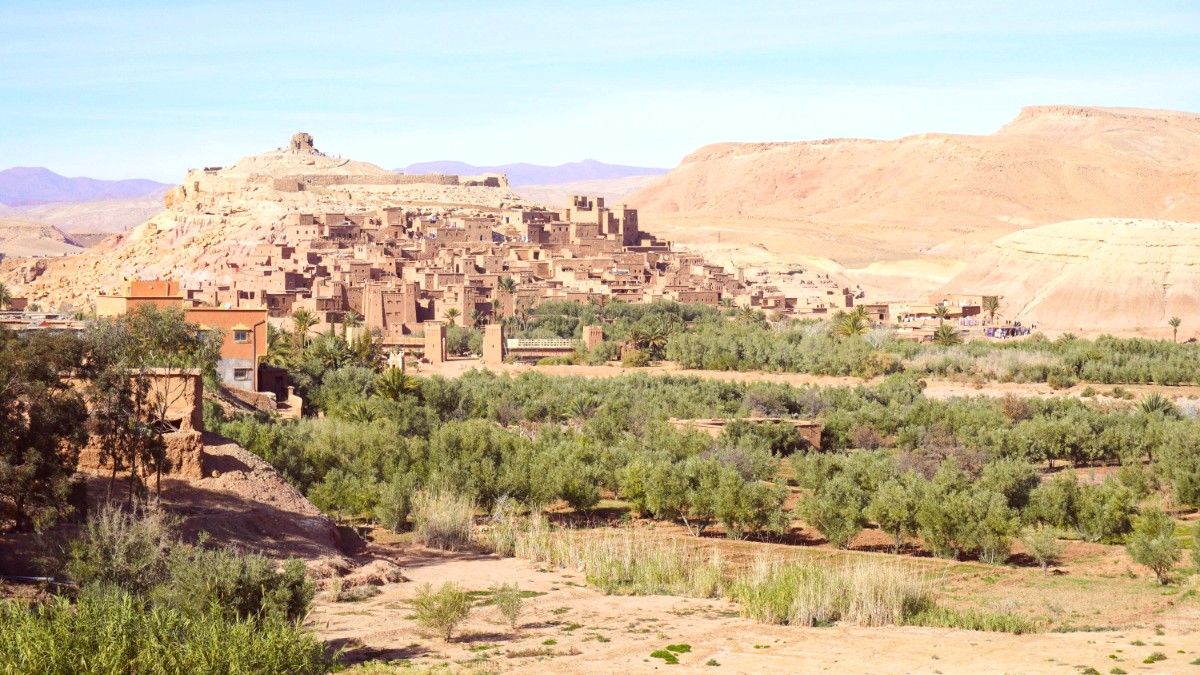
Morocco
Morocco features three main mobile network providers: Maroc Telecom, Orange, and Inwi. All maintain good coverage in Ouarzazate and along major roads.
Most accommodations feature free Wi-Fi for guests. Quality varies from fast to slower connections. Many cafes and restaurants also include free Wi-Fi.
The main post office (Poste Maroc) rests in the city center. You may send postcards and parcels from this location.
Morocco's official languages include Arabic (Moroccan Arabic, Darija) and Tamazight (Berber). French sees widespread use, notably among older generations and tourism workers. English speaking becomes more common with younger individuals.
For consistent connectivity, consider a portable Wi-Fi device from Solis Wi-Fi.
Ouarzazate's operating hours for businesses generally follow established patterns, with adjustments during holidays.
Generally open 9:00 AM/10:00 AM to 1:00 PM/2:00 PM, close for midday, reopen 4:00 PM/5:00 PM to 8:00 PM/9:00 PM. Busy area shops might stay open later.
Lunch typically 12:00 PM/1:00 PM to 3:00 PM/4:00 PM. Dinner service commonly starts 7:00 PM/8:00 PM until 10:00 PM/11:00 PM.
Banks: Weekdays, typically 8:30 AM to 3:30 PM. Attractions: Usually 8:00 AM/9:00 AM to 5:00 PM/6:00 PM. Confirm specific opening hours for film studios and kasbahs.
During Ramadan (dates vary), many restaurants close during the day, and business hours often contract. Tourist services mostly continue, but daily pace slows. Evening activities start after sunset.
Some tourist-oriented businesses might shorten hours or close completely during the extremely hot low season (July/August) due to fewer visitors.
For critical appointments or travel, always confirm opening hours and schedules in advance, especially around holidays.
Ouarzazate's local customs and etiquette enrich your experience. Observing these norms displays respect.
"Salam Alaikum" (Peace be upon you) forms a common greeting, with "Wa Alaikum Salam" as the reply. Handshakes occur between men. Women may shake hands with other women. When greeting a Moroccan woman, await her hand extension.
Modesty holds importance, notably in religious sites and local areas. Cover your shoulders and knees. This applies to both men and women.
When sharing from a communal dish, eat with your right hand. Do not point the soles of your feet at others; this is a sign of disrespect. Tipping is customary for various services.
Always ask permission before photographing individuals, notably women and children. A polite "mumkin taswir?" (May I take a photo?) or a simple gesture with a smile often yields appreciation. Respect a "no" if it is given. Avoid photographing military or government buildings.
Adopting local customs and showing deference creates a more enriching and positive travel experience for everyone.
Morocco generally presents challenges for travelers with mobility needs, and Ouarzazate is no exception.
Morocco's infrastructure, Ouarzazate included, lacks extensive accessibility features. Pavements often display unevenness or absence. Many historical sites involve stairs, narrow passages, and rough terrain.
Public transport (petit taxis, local buses) typically lack wheelchair accessibility. Pre-arranged private transfers come highly recommended for comfortable and dependable transportation.
Limited formal services exist for travelers with visual or hearing impairments. Travelers may rely on companions or specialized tour operators for aid.
Consult specialized travel agencies that focus on accessible travel in Morocco. Information often appears through traveler forums or dedicated accessibility travel blogs where other travelers share experiences and tips.
Thorough advance planning and clear communication with providers are paramount for a seamless trip for travelers with accessibility needs.